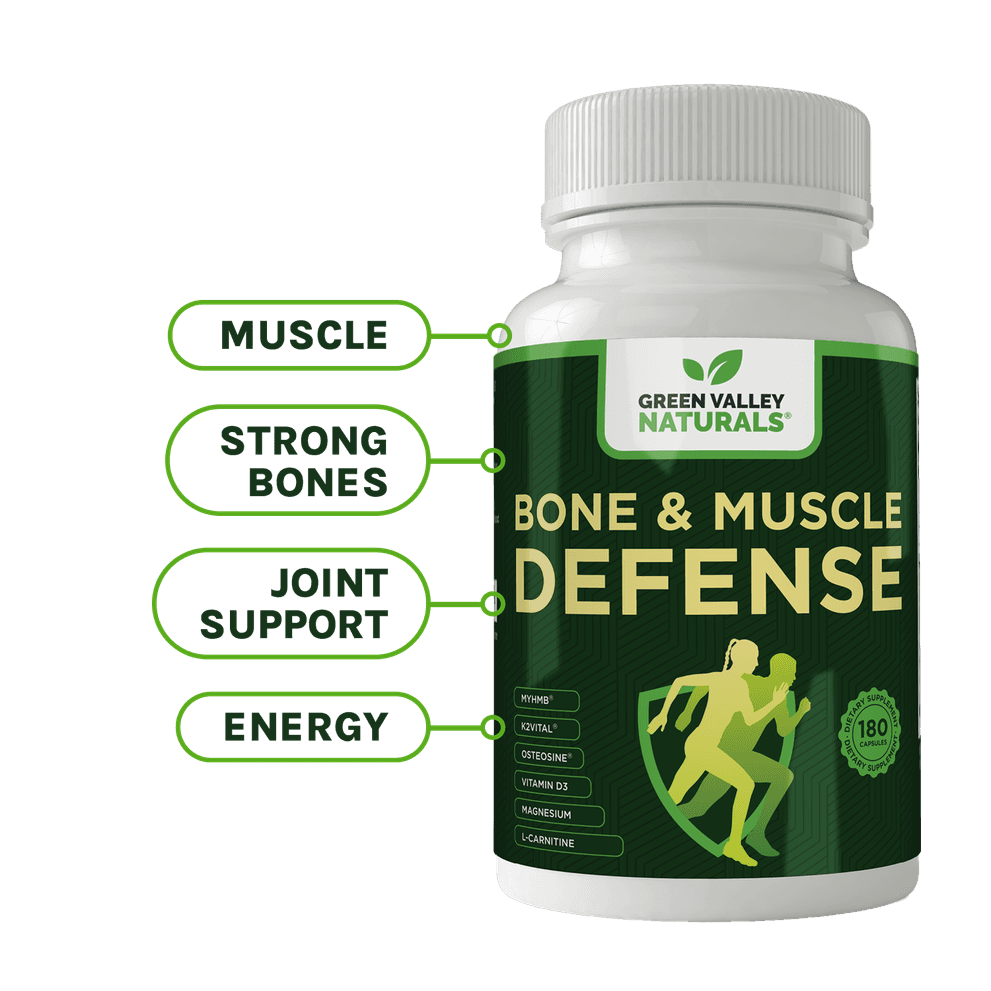
Catharine was chronically tired, experienced low energy, and had trouble walking-- often needing to use a mobility scooter. Then she went to a new family doctor who tested her for a vitamin deficiency. When she started restoring her levels of one vitamin, her malaise disappeared, and she could walk more easily for the first time in a long while.1
This vitamin deficiency is much more common than many doctors realize and can masquerade as numerous health problems. Here’s what you need to know…
A Vastly Underestimated Deficiency
New research shows that one vitamin is more important to health and well-being than many people realize. The studies suggest that it has previously unknown abilities to lower critical markers of inflammation and can even help damaged organs and tissues repair themselves. This much underappreciated vitamin is B12.
The recently deceased Dr. Joseph Chandy was well acquainted with B12 deficiency because he saw much of it when he practiced in India. When he came to the U.K., he was aware of the many symptoms a deficiency can give rise to.
B12 is known to maintain nerve function, support red blood cell production, facilitate DNA synthesis, and when deficient, will cause pernicious anemia. However, Dr. Chandy believed the scale of the problem was vastly underestimated and doesn’t often appear as anemia. He called B12 deficiency “a multi-system, polyglandular, multipoint poisonous syndrome.”2
As just about every area of the body can be affected, deficiency can cause a vast number of seemingly unrelated conditions, such as:
- Dermatitis
- Osteoporosis
- Loss of libido
- Dementia
- Poor wound healing
- Tinnitus
- Heart failure
- Mouth ulcers
- Anxiety
- Bruising
In his lifetime, Dr. Chandy wrote extensively about the problem of vitamin B12 deficiency. He said the traditional cut-off point of 150 pg/mL as a cut-off point for a diagnosis of deficiency was out-of-date (Catharine’s reading was 175).
If a patient had signs and symptoms of B12 deficiency, Dr. Chandy would give B12 injections with a reading of up to 300 pg/mL.
Scientists in Spain are also reappraising this vitamin. Their recent studies have produced some fascinating findings.
Low B12 Means High Inflammation
The Spanish team investigated the effects of vitamin B12 on the levels of two molecules recognized as critical markers of inflammation in clinical practice - interleukin (IL)-6 and C-reactive protein (CRP). We’ve written about both of these in the past, reporting on their role in the chronic inflammation, or inflammaging, that drives aging.
Their study analyzed a sample of participants who participated in a large clinical trial to assess whether the Mediterranean diet can prevent heart disease.
Marta Kovatcheva, a member of the research group from the University of Barcelona, explains what they discovered. “Our study found that in general, the more vitamin B12 an individual has, the lower their inflammatory markers.”
They also found the same relationship when they studied aging mice.
“We already know,” she continued, “that vitamin B12 deficiency can be harmful in many ways, but what we have reported here is a novel relationship. This might help us better understand why some unexplained symptoms of human B12 deficiency, like neurologic defects, occur.”3
The Spanish group’s next study produced an even more surprising result: it showed that it plays a key role in cellular regeneration.
Critical For Cellular Reprogramming & Tissue Repair
In their mouse studies, the researchers found that cellular reprogramming—a process that mimics the early phase of tissue repair—uses large amounts of vitamin B12. In fact, they discovered that vitamin B12 depletion was a limiting factor that led to errors in the function of multiple genes, which delayed and impaired the reprogramming process.
B12 plays a crucial role in methylation, which controls gene expression, including genes that kick in to replace injured and damaged tissues. Sizable amounts of B12 are needed for methylation; otherwise, repair will be hampered. Since mice's regular diet contains an abundance of B12, the Spanish team was surprised that supplementing the vitamin could markedly enhance gene function and reprogramming efficiency.
To validate their findings, they used a model of ulcerative colitis. This showed intestinal cells that kick-start repair undergo a process like cellular reprogramming and benefit from vitamin B12 supplementation.
Dr. Manuel Serrano, senior author of the study published in the journal Nature Metabolism, said: “Our research uncovers a critical role of vitamin B12 in cellular reprogramming and tissue repair. These findings hold promise for regenerative medicine, with the potential to benefit patients through improved nutrition."4
The evidence from these studies as well as Dr. Chandy’s experience in treating over 700 patients with B12 during his career in England, should encourage us to have an annual blood test to make sure levels remain well above 300 pg/mL and to be aware of the following symptoms of deficiency.
Vitamin B12 Deficiency Can Occur at Any Age
The most critical and frequent symptoms listed by Dr. Chandy are:
- Tiredness
- Depression
- Hair loss
- Pins and needles
- Numbness in hands or feet
- Tremors and palsies
- Palpitations
- Recurrent headache
- Dizziness
Those consuming plant-based diets must be vigilant, as B12 is obtained from animal foods, but even meat eaters can become deficient. This is usually caused by malabsorption that develops through a fault within the digestive system. While this is associated with people over 60, it can occur in people of all ages. One of Dr Chandy’s B12-deficient patients was just ten years old.
Our Takeaway
The next time you visit your primary care physician for a checkup, ask for a test of your vitamin B12 levels. While you’re at it, check your vitamin D levels, too. Research shows that deficiencies in both vitamins are common and can cause symptoms that look like illness. This is a simple and easy way to preserve your good health.
- BBC One NE & Cumbria: Inside Out - Dr Chandy and B12
- Dr J Chandy Vitamin B12 Deficiency in Clinical Practice Amazon, UK 2019
- EurekAlert NEWS RELEASE B12 deficiency: a hidden trigger of inflammation? 17-OCT-2023
- IRB Barcelona News Vitamin B12: a key player in cellular reprogramming and tissue regeneration 16 NOV 23

